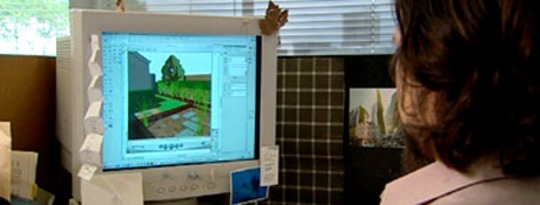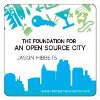
 ave you ever tried to grow your favorite summer vegetable or garden herb and something went wrong? Maybe it was poor planting, a disease, or a pesky insect. Likely, you searched the Internet and found some answers, but millions of pages of information remains unviewed and unread on the subject. Maybe you need to troubleshoot problems or want definitive answers to questions like when to plant for your area or exactly when to fertilize.
ave you ever tried to grow your favorite summer vegetable or garden herb and something went wrong? Maybe it was poor planting, a disease, or a pesky insect. Likely, you searched the Internet and found some answers, but millions of pages of information remains unviewed and unread on the subject. Maybe you need to troubleshoot problems or want definitive answers to questions like when to plant for your area or exactly when to fertilize.
This is how the idea for OpenFarm sprouted. The knowledge for all these answers is out there, it's just not in one place.
Meet Rory Aronson, the founder of OpenFarm. He's combining his skills as an engineer, social entrepreneur, and designer to build an application that can help people farm and garden better. He is also the project organizer for FarmBot. Aronson wants to take an open source approach to farming and gardening, and he's using a crowdfunding campaign to validate the idea and raise initial funding to get the project to the next phase.
I could have used a resource like OpenFarm this summer when I lost over half of my tomato plants. I think it was a soil virus, but I found conflicting information and nothing specific to my varietal. And while my peppers are still growing today, I'm curious why the leaves are falling off. Again, there is a ton of information on the Internet about this, but I'd like one resource like OpenFarm to go to for answers.
Get The Latest By Email
To find out more about the OpenFarm, where they're at now, and how they'd like to grow the project, I sent Aronson some questions. Discover how you can convert your green thumb into shared knowledge.
What is the vision for OpenFarm?
OpenFarm aims to be the "Wikipedia for farming and gardening" by crowdsourcing plant growing advice and providing that data in a free and open source manner. The primary content on OpenFarm is the Growing Guide — a structured story for growing a specific plant with particular practices and environmental conditions. Because everyone grows plants differently, an unlimited number of guides can be created for any plant, each tailored for different circumstances. Guides are then matched with readers for compatibility based on what the guide calls for (the prerequisites) and the reader's user profile including information such as geographic location, soil type, and growing practices. Each guide will also have a forum where the community can discuss the content and offer addition tips and troubleshooting advice.
How do you plan to accomplish your vision over the short-term and long-term?
A small team of volunteers have already built a basic Rails application and worked out the user interface in mockups. Now it is time to implement a solid data model, turn the mockups into code, and build the remaining logic of the application. Maintaining contact with all of the volunteers is critical in keeping everyone on the same page and moving the project forward each week.
In the long run, the biggest question is about financial sustainability. We could pursue grants, hope for donor funding, build in "pro" features that are paid for, or place relevant ads on the site. As a small team we don't yet know what to do, but we hope that the community we foster will provide valuable input on ways to keep the lights on. Ultimately, we'll need to cover the server costs and have at least one part-time developer to steward the site.
Tell us about your crowdfunding campaign on Kickstarter.
We're currently raising funds on Kickstarter to pay for server costs for the first year or two and to provide a stipend to a project champion, someone who will provide vision and coordination to the volunteer team, recruit more volunteers, maintain social outreach, and keep the project moving forward.
How does someone get involved with OpenFarm?
In addition to backing us on Kickstarter, everyone can give us a shoutout on social media (@OpenFarmCC) and share the campaign link with their networks. Software developers can check out the open issues on GitHub and send in Pull Requests to Master. Designers, gardeners, farmers, and anyone else can share their ideas with the project organizer directly at This email address is being protected from spambots. You need JavaScript enabled to view it..
Article reprinted from Shareable.net
Article cross-posted from Opensource.com.
About the Author
 Jason Hibbets is a project manager in Corporate Marketing at Red Hat where he is the lead administrator, content curator, and community manager for Opensource.com. He has been with Red Hat since 2003 and is the author of, The Foundation for an Open Source City. Prior roles include senior marketing specialist, Red Hat Knowledgebase maintainer, and support engineer. Follow him on Twitter: @jhibbets
Jason Hibbets is a project manager in Corporate Marketing at Red Hat where he is the lead administrator, content curator, and community manager for Opensource.com. He has been with Red Hat since 2003 and is the author of, The Foundation for an Open Source City. Prior roles include senior marketing specialist, Red Hat Knowledgebase maintainer, and support engineer. Follow him on Twitter: @jhibbets
Watch a video with Jason Hibbets: The Making of an Open Source City
 Book by this author:
Book by this author:
The Foundation For An Open Source City
by Jason Hibbets.
Click here for more info and/or to order this book on Amazon.







